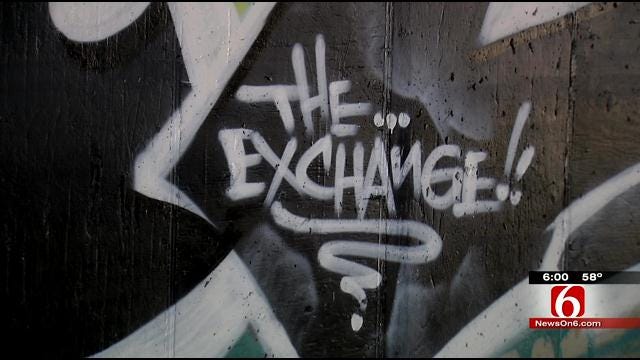Nationwide Graffiti Ring Leaves Its Mark On Tulsa
Tulsa police are investigating a local connection to a crime that's hit San Francisco, Chicago, Dallas and Detroit.Wednesday, March 12th 2014, 7:40 pm
Tulsa police are investigating a local connection to a crime that's hit San Francisco, Chicago, Dallas and Detroit.
Graffiti "taggers" known as Bowser, Swank and Repos go by the name CTD and have left their mark all over public and private buildings.
They are organized, well-funded and even post videos of their crimes on YouTube, police said.
Turns out, one of them lives in Tulsa and another is an Oklahoma State University student.
Police said these names have popped up in several cities all over the U.S., including Tulsa.
Police found a Bowswer tag in a storm water drain near Apache.
Another one was discovered on the top of a building was just across the street. Since the building is abandoned and access to it is locked, they believe the taggers had to break in.
Near Pine and Sandusky, there's another Bowser and Swank tag.
TPD Cpl. Tracy Clark says it may not be a violent crime, but it's a crime that leaves its mark.
"Their weapon is a paint can, and they're destroying property with paint cans, that's what they use," Clark said.
Oklahoma City and Tulsa police have been working together to track down Bowser, Swank and Repos.
Officers arrested three people. Court records say officers believe Chicagoan Victor Reyes, from Chicago is Repos.
They say Hillary Gaby, an OSU student, identified herself as Swank and Paul Yeakey, who lives in Tulsa, identified himself as Bowser.
News On 6 knocked on Yeakey's door, but he didn't want to talk.
Tulsa police recently did a search warrant on a house and say they found 36 pounds of marijuana, $16,000 dollars in cash and more than 300 cans of spray paint, along with dozens of drawings depicting tagging designs.
Yeakey and Gaby have been charged with the drugs, but not with vandalism at this time. Police believe selling pot is how they fund their tagging trips.
As for the crew's nickname CTD –- what does it mean?
"It's come to light that it stands for "Costing Tax Dollars." That's what they're doing, painting this stuff on walls, bridges and railroad cars," Clark said. "They want to cost us money."
The City of Tulsa spends about $100,000 a year painting over graffiti.
Police said it's an organized crime, and there's a whole underground operation with newsletters, updates and a huge following.
More Like This
March 12th, 2014
September 29th, 2024
September 17th, 2024
Top Headlines
November 30th, 2024
November 30th, 2024
November 30th, 2024
November 30th, 2024












